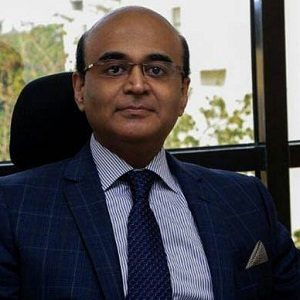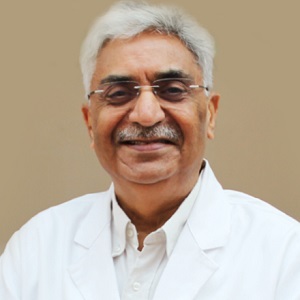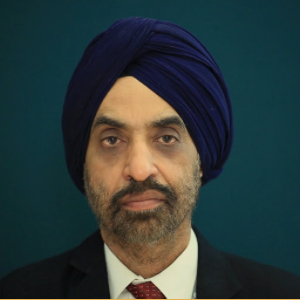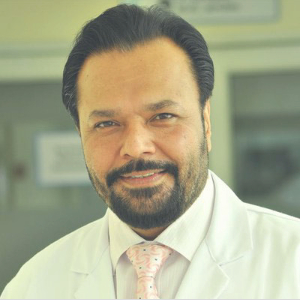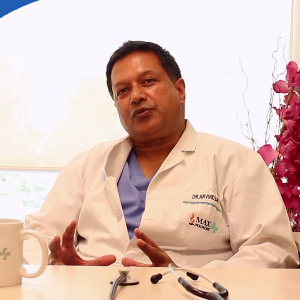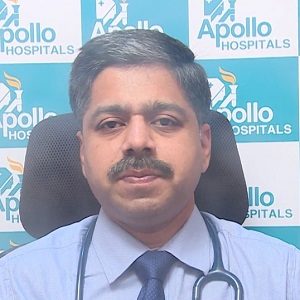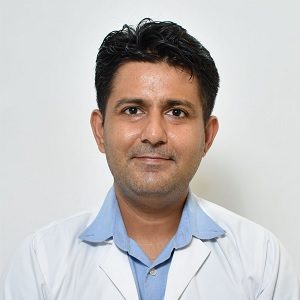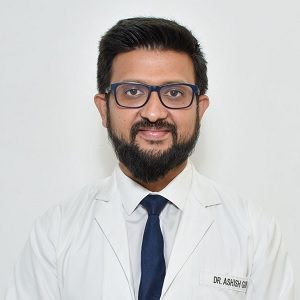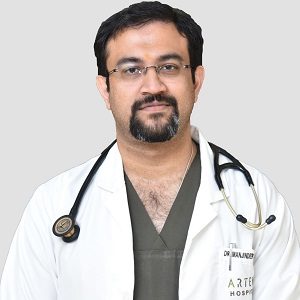Best Electrophysiologists in India
Following is a list of the most reputed & experienced Electrophysiologists in India (more to be added).
*If you need any help from us, please fill the contact form at the bottom of the page. You may also chat with us on WhatsApp or Telegram by clicking the chat buttons below the page. Wishing you the best!
- Pediatric Cardiac Surgeon, Cardiothoracic and Vascular Surgeon, Chennai, India
- Over 21 years’ experience
Profile Highlights:
- Dr. Neville Solomon is one of the best Cardiothoracic Surgeons in South India.
- Dr. Neville Solomon heads the Cardiology unit; his team has performed over 6000 heart operations to date, including 3000 congenital cardiac surgeries in newborns and adults
- In addition to this, Dr. Solomon runs the Save a Child’s Heart Initiative (SACHI) Program with his associates at Apollo Hospital.
- Vascular Surgeon and Interventional Cardiologist, Gurugram, India
- Over 30 years’ experience
Profile Highlights:
- Dr. T S Kler is undoubtedly one of the best vascular surgeons not only in India but also abroad. He has performed more than 25,000 Surgeries in his life which makes him stand where he is.
- He is a pioneer in electrophysiology & he established the first dedicated Electrophysiology department in India at Fortis Escorts Heart Institute.
- Dr. T S Kler initiated a radio Frequency Ablations programme at Escorts in 1993, one of the first of its kind in India. He was the first doctor in India to implant an ICD, CRT-P & CRT-D.
- Cardiologist, New Delhi, India
- Over 32 years’ experience
Profile Highlights:
- Dr. Balbir Singh is a reputed cardiologist with over 32 years of experience, considered a veteran in his field, both nationally and internationally.
- He has also pioneered several minimally invasive cardiology surgical techniques in India and has been honored with the prestigious Padma Shree Award for his exceptional performance.
- “LIMCA” Book of Records also highlighted Dr. Balbir Singh’s contribution to the medical field in the Indian Electrophysiology Journal.
- Interventional Cardiologist, Gurugram, India
- Over 27 years’ experience
Profile Highlights:
- Dr. Manjinder Sandhu is a leading interventional cardiologist based in Gurugram who holds an extensive experience of over 27 years in the field.
- His primary interest lies in Complex Coronary Interventions, Trans-radial Interventions, and Balloon Valvuloplasty, and has performed a large number of such procedures in his career mainly while serving in the Army Medical Corps.
- Dr. Sandhu has been teaching and training postgraduate students in Cardiology and Medicine and has been a guide to several successful cardiologists in India.
- Interventional Cardiologist, New Delhi, India
- Over 24 years’ experience
Profile Highlights:
- Dr. Arvind Das is an interventional cardiologist with expertise in all kinds of coronary and non-coronary interventions and electrophysiology.
- Dr. Arvind Das received his fellowship training in pacing and electrophysiology from the renowned Royal Melbourne Hospital in Australia. He has undergone training at Semelweiss Heart Centre, Budapest for Device Implantation.
- Dr. Arvind Das has years of knowledge and experience in various cardiac procedures and provides the best diagnostic and therapeutic treatment for all types of heart diseases and disorders.
- Interventional Cardiologist, Chennai, India
- Over 25 years’ experience
Profile Highlights:
- Dr. Karthigesan A M is a renowned Interventional Cardiologist with more than two decades of experience.
- He completed advanced training in cardiac arrhythmia in the USA to serve his patients in a better way.
- Dr. A M Karthigesan received several awards from prestigious associations for his contribution to the field.
- Dr. Karthigesan authored several research papers and articles in premier periodicals and presented papers at national conferences.
- Cardiologist, Gurugram, India
- Over 15 years’ experience
Profile Highlights:
- Dr. Anurag Passi is a young cardiologist in Gurugram and is well-known for his meticulousness, precise diagnosis, and compassionate care of patients.
- He is proficient in performing procedures like Primary Angioplasty, Transradial Intervention, Pacemaker, ICD and CRT implantation, and Complex coronary interventions (Unprotected Left Main, Bifurcation, and CTO).
- Presently, he is practicing as a Senior Consultant of Cardiology at Fortis Memorial Research Institute in Gurugram.
- Cardiologist, Gurugram, India
- Over 15 years’ experience
Profile Highlights:
- Dr. Ashish Gupta is a renowned cardiologist in Gurugram with expertise in noninvasive and interventional cardiac procedures.
- He performed several life-saving primary angioplasties in acute heart attacks, complex heart interventions, and ICD/ CRT/ pacemaker implantations with a high success rate.
- Some of the services available with the doctor include PET scan, Nuclear Thallium Test, TMT, Holter monitoring, echocardiography, etc.
- Cardiologist, Gurugram, India
- Over 15 years’ experience
Profile Highlights:
- Dr. Sanjat Chiwane is an MCI Certified young cardiologist in Gurugram.
- His career success measured 1200+ coronary angioplasties, 100 Balloon mitral valvuloplasties, and 100 renal angioplasties.
- Continuing with his meticulous career, the doctor also worked as a Clinical Instructor in Medicine and Cardiology at Mumbai University. He added Organ Transplantation to his expertise.
How to Find and Choose the Best Electrophysiologists in India
Abnormalities related to the electrical impulses that regulate the heartbeat are known as cardiac arrhythmias. These irregularities in the heart’s rhythm can be caused due to various factors such as hereditary reasons, medical conditions, or, even trauma. Palpitations (fluttering heart), dizziness, and fainting (syncope) are examples of symptoms that may indicate a problem with your heart’s rhythm.
Although the majority of arrhythmias may not result in death, some can increase a person’s risk of serious complications such as heart failure, stroke, and fainting. Hence, it is better to get an arrhythmia examined and treated as soon as possible.
If you’ve been diagnosed or suspected of heart rhythm (cardiac arrhythmias) problems, your doctor may refer you to a Cardiac Electrophysiologist or EP.
The cardiology specialization that focuses on the electrical system of the heart is called cardiac electrophysiology. Doctors who specialize in the study, diagnosis, and treatment of cardiac arrhythmias (heart-rhythm disorders) are known as electrophysiologists, commonly referred to as cardiac electrophysiologists or cardiac EPs.
You may also see a cardiac electrophysiologist for monitoring if you have heart disease, a family history of sudden death, or other risk factors including a congenital heart defect.
However, a cardiac EP is not your primary care doctor. Only patients who require specialized heart-related care are treated by this doctor. In most cases, electrophysiologists are seen by referral rather than by direct appointment.
Moreover, a cardiac electrophysiologist is not a heart surgeon. However, they have training in surgical techniques. A cardiac EP will send you to a heart surgeon if they believe you require heart surgery.
Furthermore, cardiac arrhythmias can be treated with a variety of treatments, ranging from medications to implantable pacemakers and cardioverter-defibrillators to ablation procedures and other interventions.
Electrophysiologists conduct state-of-the-art investigations using electrical heart-“mapping” tools to identify the tiny part of the heart from where abnormal electrical signals originate. Once the faulty heart tissue has been located, doctors can either precisely target specific cells with a cardiac ablation or treat arrhythmia with medications and electrophysiology (EP) study. The procedure of ablation involves using electricity, heat, or cold to kill diseased or malfunctioning cells.
Electrophysiologists may place an implanted cardiac device in some patients whose arrhythmias cannot be controlled by anti-arrhythmic drugs or ablation. For instance, the installation of a pacemaker is typically used to treat bradycardia (an excessively slow heartbeat).
A cardiac electrophysiologist can diagnose and treat problems such as:
Atrial fibrillation (“AFib”): This fast, irregular heartbeat affects the heart’s upper chambers.
Bradycardia: This heartbeat is too slow.
Tachycardia: This heartbeat is too fast.
Ventricular tachycardia: A highly rapid heartbeat like this one is risky.
Supraventricular tachycardia: A sudden, incredibly rapid heartbeat coming from the top chambers of the heart.
Ventricular fibrillation (“V-fib”): This is a risky heart muscle flutter that prevents the heart from pumping blood. The condition could be fatal.
Sudden cardiac arrest: The heart stops beating immediately when this occurs.
Long QT syndrome: This heart condition has the potential to result in unexpected arrhythmias.
Wolff-Parkinson-White (WPW) syndrome: Due to an additional electrical route in the heart, this disease may occasionally result in periods of a rapid heartbeat.
Other arrhythmias: Pregnancy, medication interactions, or metabolic issues can all lead to arrhythmias.
Cardiac electrophysiology can also include a wide range of other problems and procedures.
An electrophysiology (EP) study, also known as invasive cardiac electrophysiology, is a set of tests that examines the electrical activity of the heart and is frequently used by cardiac electrophysiologists to help in the diagnosis and treatment of arrhythmia. An EP study is a type of specialized testing used to assess the electrical functioning of the heart and search for signaling issues that can result in arrhythmia.
A thin tube known as a catheter is inserted by the doctor into a blood vessel that reaches the heart, typically in the groin but occasionally in the arm or neck, to conduct an electrophysiological study. The doctor places several of these electrically sensitive catheters into the heart and uses them to record the electrical activity of the heart and give electrical signals to it.
Next, electrophysiologists utilize the findings of the EP study to pinpoint the location of an arrhythmia in the heart and to decide if a patient might benefit from medication, an implanted cardioverter defibrillator (ICD) or pacemaker, catheter ablation, or another type of intervention.
Usually, electrophysiological studies are performed in a hospital’s electrophysiology laboratory, often known as a cath lab or a catheterization lab. It is expected that the test will take 1-4 hours. Although an EP study is painless, however, you could feel uneasy if your heartbeat speeds up or slows down. If you have any pain, tell your doctor immediately.
Now, you might be wondering if you should see a general cardiologist or an electrophysiologist (EP doctor). Choose a specialist who specializes in your disease to ensure your heart health.
It is essential to seek treatment as soon as possible after a diagnosis due to the risks connected with this heart rhythm disorder.
Finding the best doctor is crucial to getting better and managing your heart health.
The electrophysiologist that you select is largely responsible for the success or failure of your electrophysiology treatment. Even though India has many skilled and accomplished EP doctors, finding the best Electrophysiologist in the country remains a problem for everyone. To help you solve this problem, we’ve covered some of the top electrophysiologists in India in our featured list. You can choose the ideal electrophysiologist for your needs by considering the following important factors:
Key Factors to Be Considered in Choosing the Best Electrophysiologists in India
Years of Experience
We put the utmost emphasis on the surgeon’s years of experience performing a particular type of procedure while selecting the best electrophysiologists in India. Even though experience and expertise are not always related, it is generally believed that doctors with a lot of experience are far more proficient than new doctors.
Moreover, technologies related to electrophysiology are advancing rapidly. The quality and length of patients’ lives are significantly impacted by the curative procedures carried out in this discipline. To diagnose and treat various arrhythmia types, cardiac electrophysiologists utilize a wide range of cutting-edge technologies.
Top Electrophysiologists keep expanding their expertise in line with the continual development of the medical field. They are dedicated to improving patient outcomes by remaining current on cutting-edge medical breakthroughs and surgical techniques. Hence, we have ensured that the selected electrophysiologists on our featured list are well-equipped with the latest strategies and treatment approaches to speed up your recuperation. You can be sure that you will receive a high-quality course of care if they are updated with treatments.
Since our website primarily caters to international patients who travel abroad for critical cases, we made it a priority to include the best Electrophysiologists in India.
Academic Qualifications
The majority of electrophysiologists are cardiologists with years of extra training in the discipline; although some may have started as surgeons or anesthesiologists.
Cardiac electrophysiologists must finish more than ten years of formal medical education, which includes medical school, internal medicine training, and a fellowship in cardiovascular diseases. Only then a doctor can enroll in a two-year fellowship to earn clinical cardiac electrophysiology specialty certification.
A doctor is then given a Subspecialty Certificate in Clinical Cardiac Electrophysiology after completing a cardiac EP fellowship; this certificate must be renewed every ten years.
Hence, the academic qualifications of the doctors are thoroughly considered when selecting the best Electrophysiologists in India. The surgeon’s qualifications, including their training, certification, and authorization to perform any particular type of electrophysiological treatment, are also taken into consideration. These surgeons have attended numerous medical conferences, engaged in professional organizations, and are highly skilled researchers. The majority of them have also completed multiple national and international fellowships apart from their mandatory training in the field.
Reputation of the Graduating University of the Doctors
The standing of the university from which the doctors graduated was also taken into account while selecting the best electrophysiologists in India. The graduates of major medical institutes are represented on the list.
Reputation of the Practicing Hospital
Another important consideration when looking for the best electrophysiologists in India is the reputation of the hospital where they are currently practicing. In addition to the best equipment and facilities, a good doctor requires a supportive environment to work well. The very best electrophysiologists take extreme precautions to ensure the safety of their patients. This can be achieved by using cutting-edge medical technology, using minimally invasive techniques, and abiding by stringent surgical restrictions when carrying out the treatment.
For a seamless medical experience and patient satisfaction, the OPD area, the operating room, the surgical equipment, the recovery room, and every other section of the hospital must be excellent. Therefore, we only select the top electrophysiologists who work in hospitals with outstanding facilities and who have passed the assessment of agencies like NABH and JCI.
Although the majority of electrophysiologists work in only one hospital, others can visit patients at multiple locations. And much like your electrophysiologist’s credentials, the hospital you select should be exceptionally skilled in treating cardiac rhythm abnormalities. Here’s what you should look at:
Advanced Technology: The hospital should be equipped with the newest pacemakers and implanted cardioverter defibrillators (ICDs) to address a wide range of abnormal heart rhythms on an individual level.
Sophisticated Electrophysiology Labs: To treat atrial and ventricular tachycardia, the laboratories should be equipped with cutting-edge mapping equipment and ablation technologies.
Comprehensive Diagnostics: To assess patients with fainting (syncope) or other neurogenic diseases, the hospital should provide a range of diagnostic tests. This might involve testing for autonomic reflexes, blood volume, hemodynamics, and head upright tilt.
Genetic testing: To detect any hereditary arrhythmia problems, the hospital should have access to genetic testing.
Diversified Experience of Doctors
Though it’s not the most important criterion, the diversified experience of the doctors is something to take into account. Owing to the broad patient population they serve, government, military, and trust-run hospitals sometimes have a wider range of experts. This diversity of experience can be advantageous, which is why some of the names on the list were chosen with this factor in mind.
Patient Feedback and the Doctors' Overall Reputation
Choosing the right electrophysiologist can be quite confusing at times. In that case, patient reviews and a doctor’s reputation within the medical community can be quite helpful in making this decision. Keeping this thing in mind, we have compiled a list of the best electrophysiologists in India on the basis of patients’ reviews and the electrophysiologists’ overall reputation in the medical community.
As a leading medical assistance company, Ginger Healthcare speaks with hundreds of patients each month in hospitals all throughout the nation. As a result, we often hear from patients receiving Electrophysiological treatment in hospitals all around India. Thus, while creating the list of the finest Electrophysiologists in India, we spoke with our team and selected the names of the doctors based on our collective input throughout the years.
So if you’re looking for an electrophysiologist, Ginger Healthcare can help you with all the assistance you may need. We hope that the suggestions we provided will offer you the assurance you need to choose the top electrophysiologists in India.
Lastly, we sincerely hope you found the list helpful. If and when you receive treatment from any of the listed doctors, kindly provide us with a feedback. Your input will be much appreciated. We’re wishing you success!

